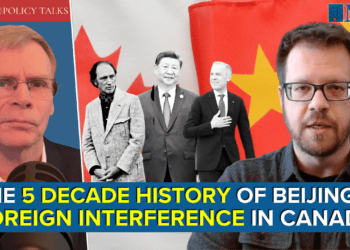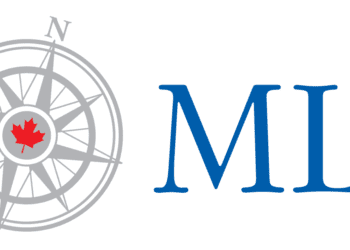
This article originally appeared in the Hamilton Spectator.
By Jonathan Berkshire Miller and Karthik Nachiappan, June 15, 2022
When U.S. President Joe Biden this spring unveiled his administration’s much-anticipated Asian economic strategy — the Indo-Pacific Economic Framework (IPEF) — the pact included a dozen countries representing nearly 40 per cent of the world’s economic output. But one key Pacific nation was missing from the team: Canada.
Washington’s partners in the Indo-Pacific had been hoping this announcement might show a more strategic U.S. approach to a region that balances security interests and geoeconomic developments.
The framework offers a pathway for 13 countries to negotiate rules that will eventually regulate their economic relationships. It includes all five U.S. treaty allies in Asia — Japan, South Korea, Australia, the Philippines and Thailand — as well as other key states in the Association of Southeast Asian Nations (ASEAN).
Canada’s exclusion marks another low point in the Trudeau government’s Asia policy, including being sidelined from security-economic mechanisms like the Australia-UK-US agreement (AUKUS), the Quadrilateral Security Dialogue (or Quad) and now IPEF. Canada was also left out of the new Indo-Pacific strategy released by Washington earlier this year.
In a nutshell, IPEF internationalizes Biden’s economic agenda to protect and prolong America’s economic leadership in Asia, while chipping away at China’s ascendance by enticing signatories to negotiate standards that comport with Washington’s vision. Tariffs and market access are off the table. Instead, the focus will be on regulatory harmonization, somewhat similar to expectations strewn into the Comprehensive and Progressive Agreement for Trans-Pacific Partnership (CPTPP) and Regional Comprehensive Economic Partnership (RCEP).
The IPEF’s success will be determined by the buy-in and trust from its partners, many of whom are still burned from when Donald Trump pulled the U.S. from the Trans-Pacific Partnership in 2016.
Does the IPEF matter for Canada? The Trudeau government doesn’t seem fazed or concerned about the exclusion, citing Canada’s presence in the CPTPP as sufficient. This reasoning, however, misses a larger political and strategic point.
One would think this Canadian government would enthusiastically consent to join this economic agenda, given its focus on fortifying supply chains, reducing inequality, mitigating climate change and controlling inflation. Frankly, whatever framework ensues will matter immensely for Canadian businesses that will bear the burden when it comes to compliance as well as opportunities lost by not being connected to IPEF-related networks.
Being part of a regional grouping like IPEF with like-minded countries also lets Ottawa make the political case domestically on the importance of the Indo-Pacific. That would then compel Canada’s foreign policy apparatus to move nimbly and proactively.
Canadian policy-makers need to hitch themselves to strategic initiatives in the region, but instead Canada is becoming more disconnected. This is symbolized by Ottawa’s inertia to produce a robust strategy for the region despite years of commitments to do so. Even non-Pacific states like Germany and the Netherlands have Indo-Pacific strategies. Ottawa’s lack of urgency is hurting Canada’s interests.
It’s facile to regard IPEF just as an economic framework that will help the U.S. and its partners cobble together rails and rules to govern the regional economy. These rules serve as an antidote to conflict but also, if successful, make the region more free, open, integrated — and protected from economic and political coercion. There’s a strategic logic driving IPEF negotiations and other emergent frameworks like the Quad and AUKUS that Canada continues to miss.
A free and open Indo-Pacific is in Canada’s core interest, yet Ottawa consistently fails to realize that truth and act on it. The IPEF is just the latest example of this. Despite the urgent challenges of a security crisis in Europe, it’s time for Canada to finally wake up to what’s happening in the vital Indo-Pacific region.
Jonathan Berkshire Miller is director and senior fellow, Indo-Pacific at the Macdonald Laurier Institute. Karthik Nachiappan is a member of the Canada India Strategic Dialogue for the Macdonald-Laurier Institute and Observer Research Foundation.




